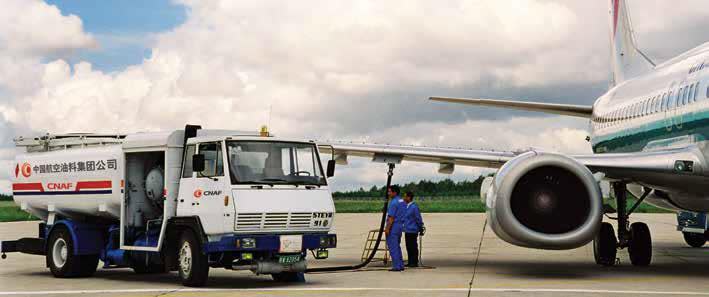SI Research: 3 Stocks To Long Despite Their Unimpressive Quarter
Once again, the quarterly earnings season is in full swing. As companies release their results, analysts are on the streets are also busying themselves with revising their estimates.
For better or worse, it has become more prevalent that companies are increasingly being judged by stacking their quarterly results against the consensus estimates. The ability to exceed expectations is usually rewarded with a jump in share price. Conversely, if a company falls short of expectations, analysts would downgrade the stock to reflect the lowered new estimate.
This growing focus on quarterly earnings has often than not led to over-reaction in stock valuations and hence heightening investors’ susceptibility to fear and the herd mentality. The temporal blip in the business nonetheless creates a distortion between the share price and its long-term intrinsic value. After all, is hitting quarterly targets more important than a company’s ability to increase shareholder value long term?
For long-term investors though, quarterly misses can be wonderful buying opportunities for quality companies. With that said, in this issue, we look to three quality stocks with great long-term intrinsic value despite having an unimpressive quarter.
CapitaLand
The largest developer listed on the Singapore Exchange, CapitaLand posted a dismay quarter that missed the street’s expectations in 1Q19.
Revenue plunged 23.8 percent to $1 billion due mainly to lower contributions from its residential projects in Singapore and China, partially offset by higher handover of residential units in Vietnam and higher rental revenue from the portfolio of properties in the US and Europe acquired in 2018. Bottom line-wise, CapitaLand reported net profit of $295.6 million, a fall of 7.4 percent. After adjusting for divestment gains and losses, revaluations and impairments, operating net profit actually fell by a cringy 20.5 percent to $181.9 million.
That said, CapitaLand could be looking at a backend-loaded year. As management has cited, in 1Q19, CapitaLand only handed over 328 residential units in China with a total value of Rmb1.2 billion. However, new sales were up 22 percent to 1,218 units with sales value rising even more by 53 percent to Rmb2.6 billion. Take-up rates were going strong, with 91 percent of the Group’s launched units in China already sold. In addition, there are still over 5,000 units to be launched in China for the remainder of FY19. If that is not enough, 60 percent of Rmb17.2 billion for some 7,800 units previously sold, are expected to be recognised from 2Q19 to 4Q19.
China aside, Vietnam, another of CapitaLand’s core growth market, continues to be supported by strong fundamentals of a young and growing middle class. As of 1Q19, 98 percent of launched units in Vietnam have already been sold. In a similar fashion, the Group expects to recognise 31 percent of the $732 million in total sales value for the 2,371 sold units already sold in the remainder of the FY19.
Lastly, the opening of Jewel Changi Airport (jointly developed with Changi Airport Group) is a timely reminder of the kind of quality CapitaLand delivers. The new retail podium, with a committed occupancy of 98 percent as of 1Q19, has attracted an average 400,000 shopper traffic per day in the opening week. With a revamped Funan mall slated to be opened in 2Q19, we can further expect a boost in rental income going forward.
Overall, we find it rather undemanding for the stock to trade at 0.78 times its book value at the current share price of $3.51, considering that Jewel Changi Airport and the revamped Funan Mall could see some upsized revaluation gains in the future.
Raffles Medical Group
In the latest 1Q19, the homegrown Raffles Medical Group (RMG) generated revenue of $128.3 million and net profit of $13.6 million. This represented an increase of 6.7 percent in the top line and a decline of 13.7 percent for the bottom line.
This was the first quarter where Raffles Hospital Chongqing, opened on 2 January 2019, made its maiden contribution. Performance was mainly impacted by start-up costs relating to RMG’s first hospital in China, as management quipped that the approximately $2 million loss attributable to Raffles Hospital Chongqing was well within expectations. Excluding the start-up loss, net profit would have grown by 2.1 percent while earnings before interest, taxes, depreciation and amortisation (EBITDA) would have been 9.3 percent higher.
Nonetheless, there are still bright spots to suggest that RMG is executing its growth strategy well. For a start, revenue growth was spurred by 8.9 percent growth in the healthcare services division and 3.2 percent growth in the hospital services division. These were brought about by the increase in premium from existing and new clients, the Group’s Primary Care Network Scheme and higher utilisation of hospitals’ inpatient capacities.
On Raffles Hospital Chongqing, the Group has seen some 500 patients in 1Q19 so far. Though not impressive for a three month period, we believe that ramp up will increase pace going forward. As management has explained, the first quarter – which coincides with the Chinese New Year festive period – is typically soft. Nonetheless, the Group is in the process of being appointed by international insurance companies and has since secured a number of corporate contracts. With its good brand name, scaling up would be a matter of time.
Further in its pipeline, RMG is slated to add Raffles Hospital Shanghai to its China portfolio. Construction works on the next Chinese hospital remains on track and preparatory works for commissioning and operational phase have begun and is expected to be completed by 4Q19. In the local space, the extension of Raffles Hospital Singapore has been completed and the new block, Raffles Specialist Centre, was officially opened in March 2019.
Currently trading at $1.02, RMG is changing hands at 27.4 times price-to-earnings and a hair breath away from its 5-year low of $0.98. Taking into account the future value of its long-term investments, the current valuation is not an expensive price to pay for RMG.
China Aviation Oil
For the latest 1Q19, China Aviation Oil (CAO) saw its revenue tumble 9.4 percent to US$3.7 billion while net profit slipped 2.1 percent to US$26.3 million. The underperformance in the quarter arose from a moderate 8.9 percent decrease in contributions from its largest associate, Shanghai Pudong International Airport Aviation Fuel Supply Company (Shanghai Pudong).
In the period, the share of profits from Shanghai Pudong fell to US$17.2 million, mainly due to the lower average oil prices in 1Q19. Excluding results of associates, CAO’s operating profit of US$8.3 million, actually represented growth of 11.1 percent despite a weaker top line. This further indicated the company’s ability to navigate through challenges.
Disregarding its 1Q19 results, CAO remains a great proxy to China’s sky. As the jet fuel supplier to 17 international airports across Mainland China, CAO is expected to ride on the tremendous growth in China’s air traffic. With only 120 million Chinese citizens (10 percent of its population) owning a passport, 30 million more passports are expected to be issued this year alone.
Lastly, long-term investors would like CAO for its pristine balance sheet where CAO carries zero debt and US$379.2 million in cash. The stock, at the current share price of $1.29, is trading at book value and just 8.8 times its earnings. On top of the attractive valuation, a sustainable 3.5 percent yield definitely sweetens the deal.

 Yahoo Finance
Yahoo Finance 



